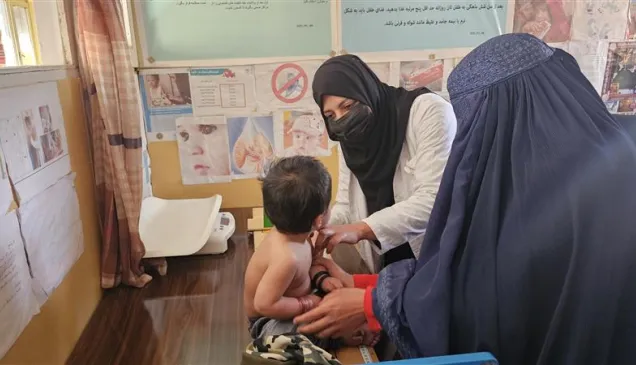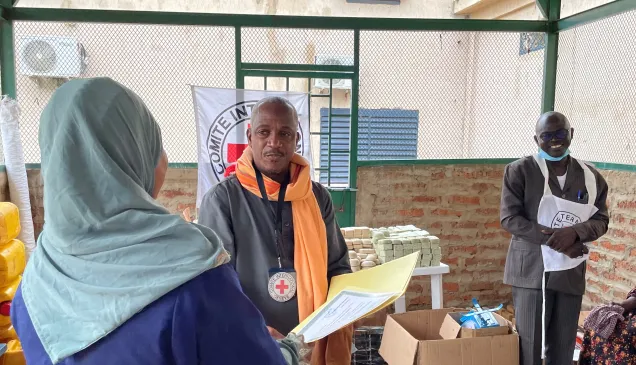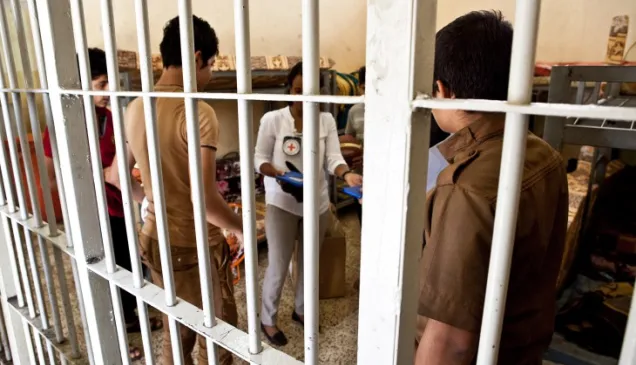Yemen: “A great moment of humanity” as detainees are released
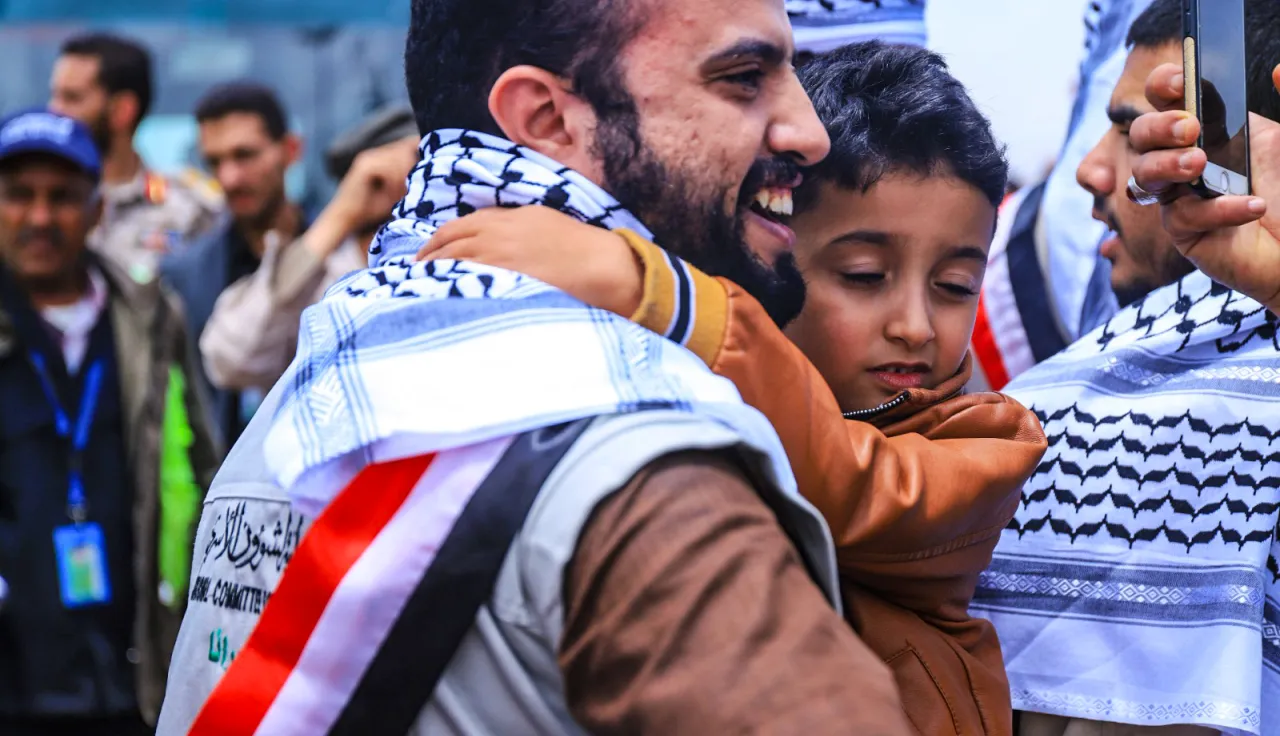
At the request of the parties involved in the fighting in Yemen, the International Committee of the Red Cross (ICRC) facilitated mid-April 2023 the release and transfer of 973 people detained in relation to the conflict. As a neutral intermediary in tense situations, we are able to create spaces where people can escape the clutches of violence and hardship, in Yemen and beyond.
Friday 14 April 2023, Aden's airport. ICRC delegate Fatima Sator accompanies ex-detainees on their way to Sanaa. Before boarding the plane, she hands them a phone so they can alert their families they will be home soon. "This is so moving, all of them are euphoric at the idea of seeing their relatives in the next hours after years of captivity. It's a great moment of humanity."
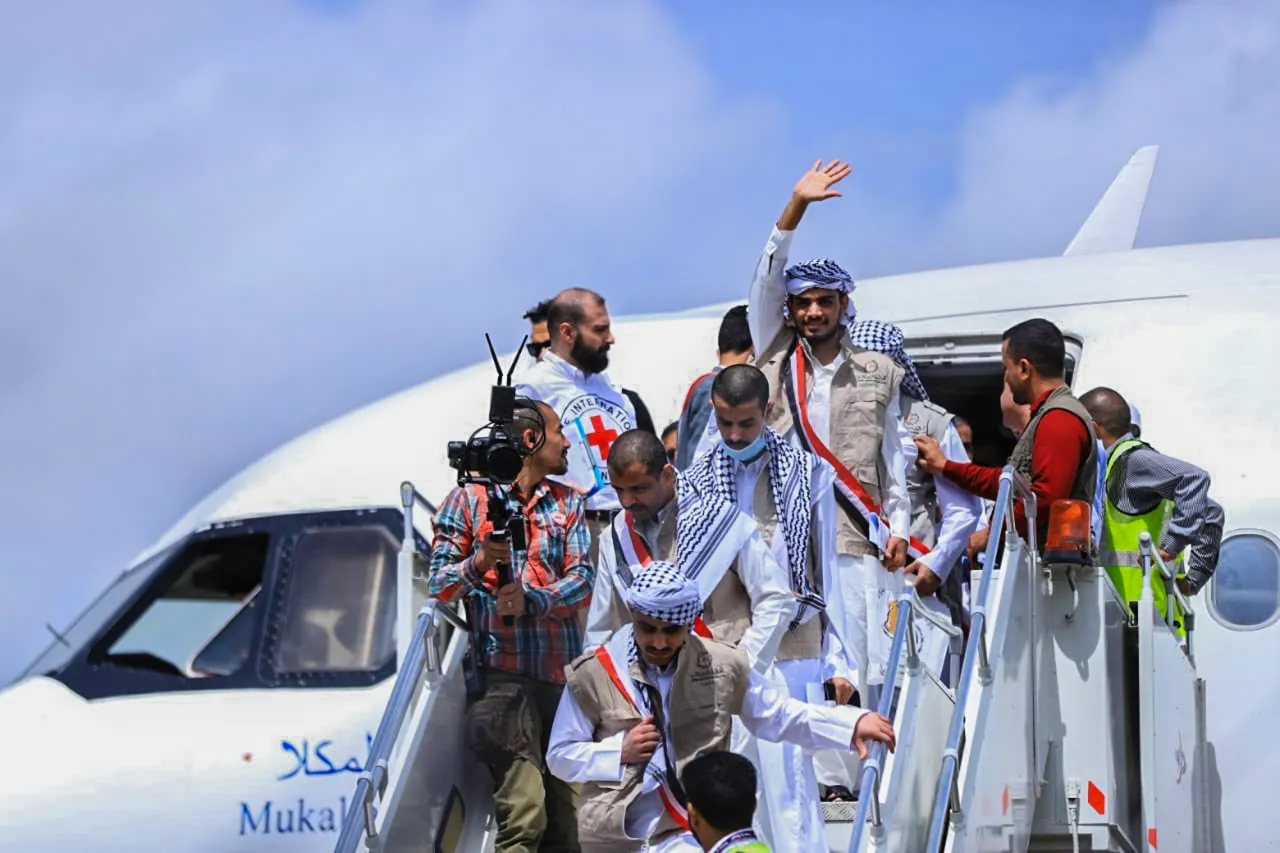
Former detainees arriving in Sanaa.
The logistical machinery mobilized two chartered planes and three ICRC-owned planes, completing a total of 18 flights that shuttled back and forth between six towns in Yemen and Saudi Arabia, facilitating the safe return of over 950 individuals to return home.
The Yemen and the Saudi Red Crescent Societies medical staff and volunteers helped detainees with disabilities on and off the planes and provided first aid and ambulance services where needed. The operation lasted until Monday 17 April, with the last ex-detainees doing the final leg of their journey by taxi or bus with ICRC's financial support.
During the flight, an ex-detainee confides in Fatima: "I have waited for this moment for years and I only want one thing, to hug my children." Before adding with a big smile: "This month I celebrate Eid twice, today and in a week!"
On arrival in Aden, the tarmac is invaded by a crowd of officials, military and family members. Men hug each other, kiss each other on the forehead, traditional dances are improvised. "The families cry with so much joy that they can't talk anymore," says Fatima.
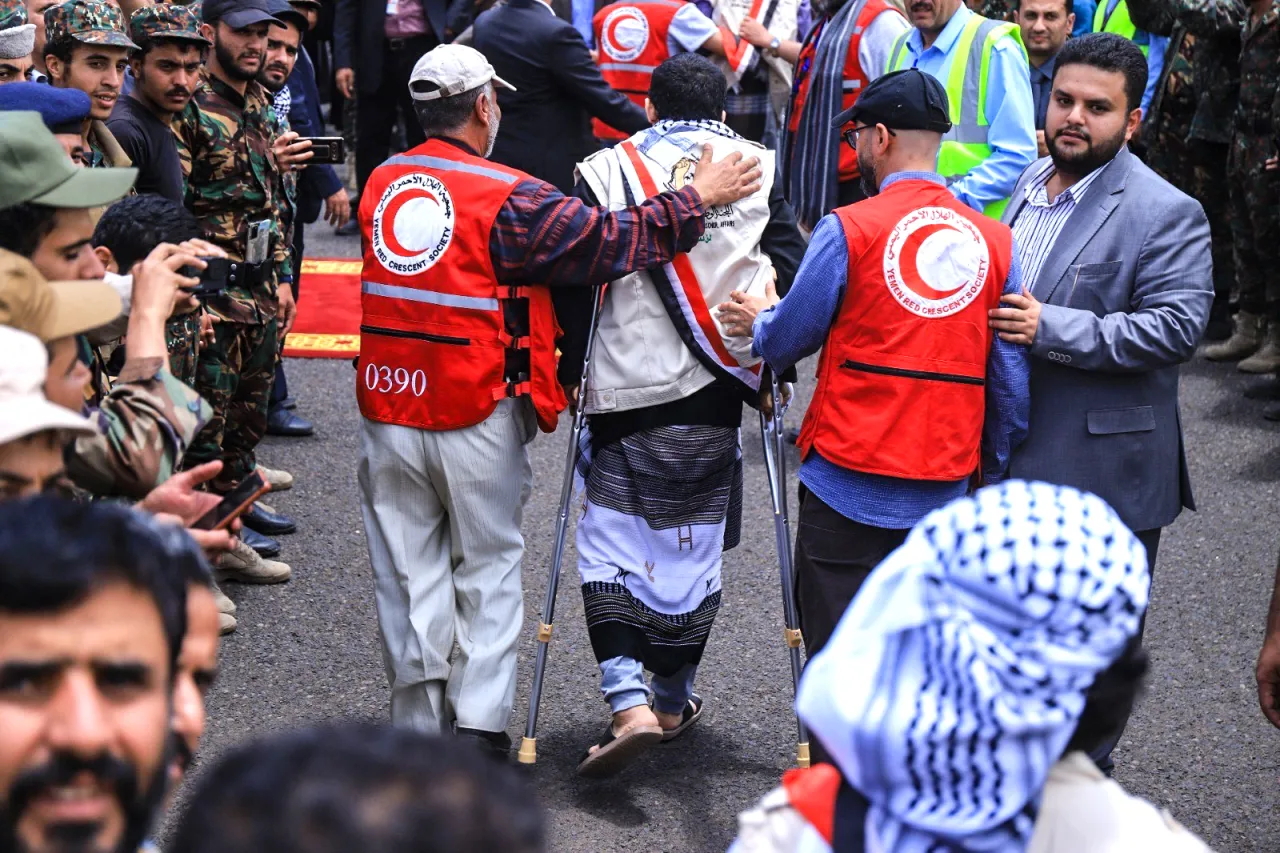
The Yemen and the Saudi Red Crescent staff helped detainees with disabilities on and off the planes.
#Yemen / #SaudiArabia: Scenes of overwhelming joy as nearly 900 detainees return home in three-day release operation.
New footage AVAILABLE NOW to download from our #newsroom
? https://t.co/FQn3RZilkj pic.twitter.com/k4KaU85oZC— ICRC (@ICRC) April 16, 2023
With your help we can continue delivering life-saving aid. Please make a donation today.
More than transporting people
The release operation is the result of talks concluded on 20 March 2023 in Bern, Switzerland, where the parties to the conflict in Yemen agreed to release close to 900 people. We co-chaired these meetings with the Office of the Special Envoy of the Secretary-General for Yemen.
In December 2018, parties to the conflict had signed the Stockholm Agreement whereby they committed themselves to freeing conflict-related detainees.
This is the second-largest release operation we have facilitated in relation to the Yemen conflict – the largest was in Oct 2020, when over 1,000 detainees were released.
Deputy head of ICRC operations in Yemen Ralph Wahbe says, "It's a real privilege to be part of a landmark event such as this one. But let's make this clear: our role goes definitely beyond merely chartering planes and transporting people."
In the days and weeks leading up to this operation, the ICRC visited all detainees in their places of detention and met them privately to make sure that returning home is done willingly and their security is ensured.
Delegates also made sure that they were fit to fly and offered them the option to inform their families that they were coming home.
The human impact of such release operations is huge. "It helps end the suffering of many separated families and build confidence between the parties, which we hope will lead to further release operations," stresses Ralph Wahbe.
More than 300 prisoners have been released in Yemen today, part of a prisoner swap for nearly 900 people facilitated by the @ICRC. @chrissymacCNN speaks to @FCarboniICRC about how the operation is progressing: pic.twitter.com/C8dIHKvZO4
— Connect the World (@CNNConnect) April 14, 2023
Why detainees need protection
As stated in our latest report on detention, "Detainees are vulnerable to ill-treatment by their capturers and guards, their well-being depends entirely on the capacities and interests of their captors, and many are anxious because they do not know how long they will remain in detention."
These dangers remain at all times and can run high during the liberation and transfer operations due to the hate and resentment that have grown between enemies, or the proximity of ongoing military operations.
This is where we have a clear added value gained through decades of neutral action in the midst of polarized and violent situations. By neutralizing spaces such as hospitals, and means of transportation such as buses and planes, we can keep from harm all the people placed under the protection of the emblems of the Red Cross, Red Crescent or Red Crystal.
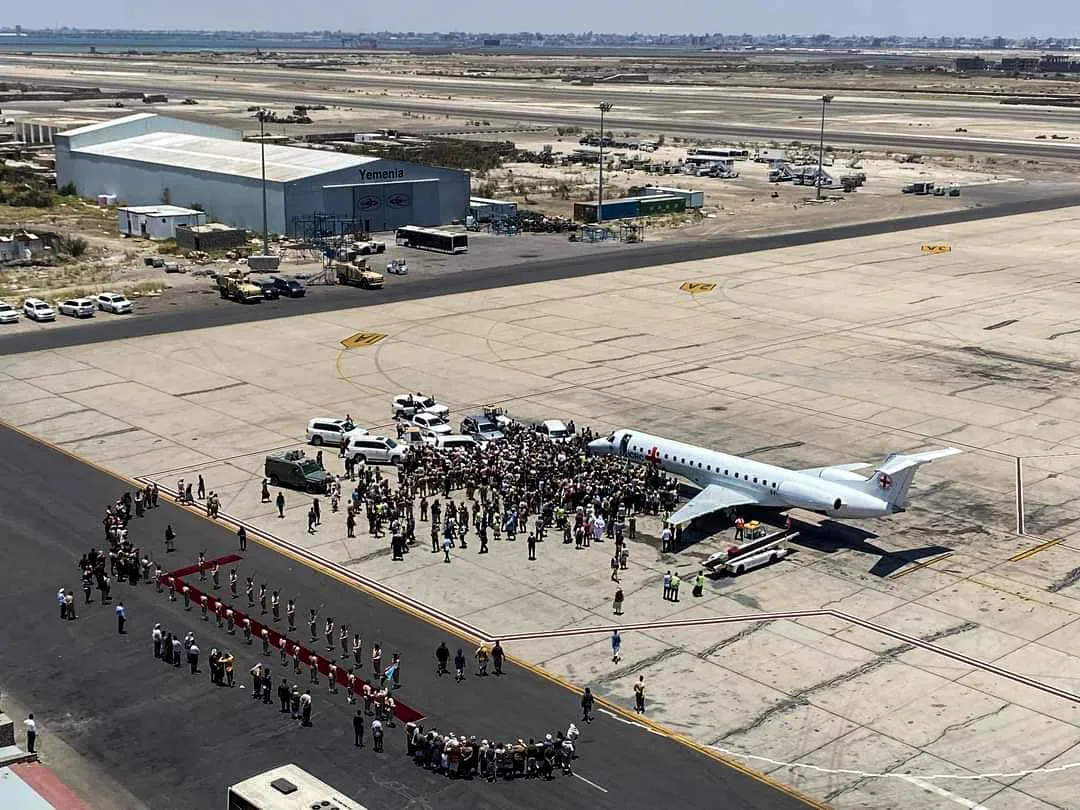
The logistical machinery mobilized two chartered planes and three ICRC-owned planes, completing a total of 18 flights that shuttled back and forth between six towns in Yemen and Saudi Arabia.
There are too many families who do not know the fate of their loved ones - whether they are alive, dead, wounded, or detained. They too deserve clarity. The ICRC encourages the parties to start negotiations on the repatriation and exchange of those who are still detained and killed in action.
Ralph Wahbe concludes: "We appreciate that all parties to the conflict trust the ICRC as a neutral intermediary actor in this operation. But let's keep in mind that there are still detainees who are waiting for their release. We are ready to help."
In Yemen since 1962
As provided in article 3 common to the Geneva Conventions, the ICRC offered its services to the parties to the conflict in the country in order to provide help to the most vulnerable in this devastating and long-lasting conflict. These services include registering detainees and checking that they are treated with humanity, establishing contact with their families, improving their conditions of detention if needed, and participating in their safe liberation.
The last eight years of conflict have brought Yemen to its knees, with essential services on the verge of collapsing and millions of people reliant on humanitarian aid. In collaboration with the Yemen Red Crescent Society, we support projects to improve health, water and sanitation in vulnerable communities; help people to become independent financially; and support efforts to remove explosive remnants of war. Recent funding shortages from international donors may undermine our neutral and impartial action.

